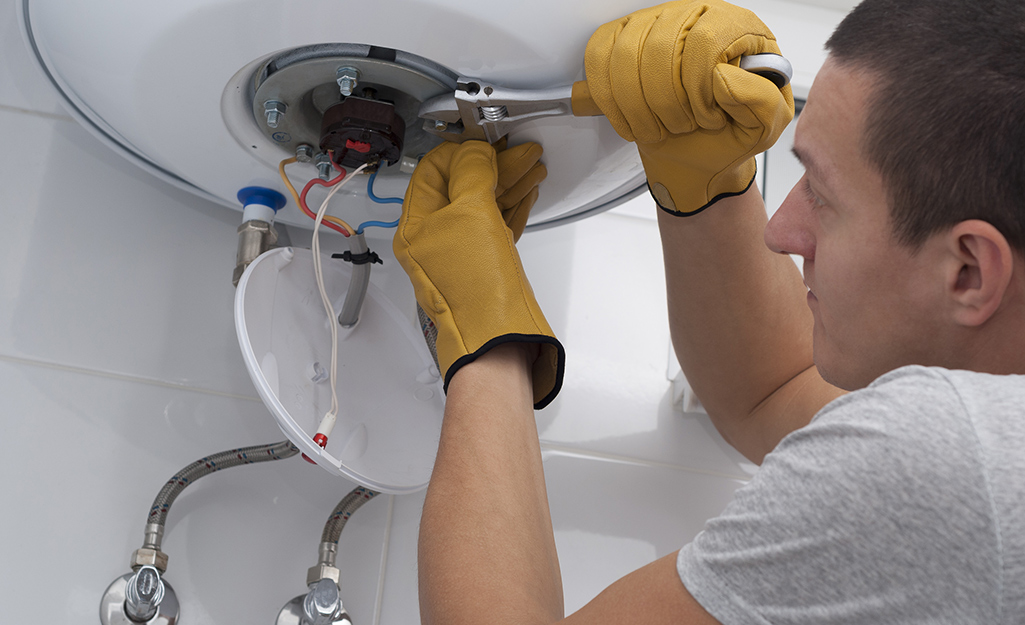They are making a few great pointers on Common Hot Water Heater Problems overall in the article on the next paragraphs.

A water heater is just one of the most vital basic appliances that can be located in a house. With hot water heater, you do not need to experience the stress of home heating water manually whenever there is a requirement to wash, wash, or the meals. Nonetheless, there is always a possibility that your water heater would act up as with a lot of mechanical devices.
It is essential to note any kind of little breakdown as well as tackle it swiftly prior to things get out of hand. Many times, your water heater starts to malfunction when there is a build-up of debris as a result of continuous use. As a preventative measure, routine flushing of your hot water heater is suggested to stop debris accumulation and also prevent practical failure.
Typical hot water heater emergencies as well as just how to take care of them
Dripping hot water heater container.
A leaking storage tank could be a sign of deterioration. It can create damages to the flooring, wall surface and also electrical gadgets around it. You could even be at danger of having your apartment or condo swamped. In this circumstance, you need to turn off your hot water heater, permit it to cool down, as well as meticulously try to find the resource of the issue. Sometimes, all you need to do is to tighten up a few screws or pipe connections in cases of small leakages. If this doesn't work and the leak continues, you might need to use the solutions of a specialist for an ideal replacement.
Fluctuating water temperature.
Your water heating unit could begin producing water of different temperatures typically ice scalding or chilly hot. There might be a requirement to change either the heating or the thermostat device of your water heating system.
Inadequate warm water
It may be that the water heating unit can not support the hot water need for your house. You can update your water heater to one with a bigger ability.
Discolored or odiferous water
When this happens, you need to recognize if the issue is from the tank or the water resource. If there is no funny smell when you run chilly water, after that you are specific that it is your water heating unit that is defective. The odiferous water can be caused by corrosion or the build-up of microorganisms or sediments in the water heating system storage tank.
Conclusion
Some property owners overlook little warning as well as minor faults in their water heater unit. This only causes further damage and also a possible full break down of your appliance. You must manage your hot water heater faults as soon as they come near avoid more costs and also unnecessary emergency problems.
With water heating units, you do not require to go with the stress and anxiety of home heating water manually every time there is a need to take a bathroom, do the laundry, or the meals. Your water heating unit might begin producing water of different temperatures normally ice cool or scalding hot. It might be that the water heating unit can't sustain the hot water need for your apartment or condo. If there is no funny odor when you run cold water, then you are certain that it is your water heating system that is damaged. The smelly water can be triggered by rust or the buildup of microorganisms or debris in the water heating unit container.
Common Water Heater Issues and What You Should Do
What Type of Water Heater Do You Have?
Before we begin it’s first important that you identify the type of water heater you have on your property. There are two main types of water heaters out there: conventional and high efficiency.
Both of these types of products typically use either gas or electricity to heat power. There are also solar water heaters that use a thermal collector on the roof or yard to heat the water.
While these models are not as common, they can cut heating costs in half. In this article, we will focus on conventional and high efficiency.
How Do My Electric and Gas Water Heater Work?
Though they look similar, electric and gas water heaters work very differently. It’s important to know their basic function because often problems can be specific to the heating source.
In the electric model, a thermostat on the side of the machine detects the temperature of the water in the tank. When the temperature needs to rise electricity flows to a heating element suspended in the water.
Gas models also use a thermostat device — typically with a mercury sensor at the tip and an additional sensor called a thermocouple. The thermocouple detects whether the pilot light is on and controls the flow of gas.
When the thermostat drops below the appropriate level gas is released which becomes ignited by the pilot light. The flame heats the bottom of the water tank which causes hot water to rise and cold water to drop.
This natural circulation continues until the water reaches the desired temperature. Then, the thermostat triggers the gas control valve to shut off the flow of gas.
What Are the Most Common Issues and How Do You Fix Them?
https://happyhiller.com/blog/common-water-heater-issues-and-what-you-should-do/

As a passionate reader about Is Your Water Heater Leaking?, I assumed sharing that article post was mandatory. Enjoyed reading our blog entry? Please share it. Help another person discover it. We treasure reading our article about Is Your Water Heater Leaking?.
Article